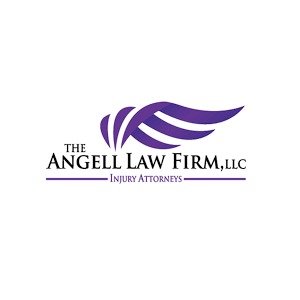Best Toxic Tort Lawyers in Atlanta
Share your needs with us, get contacted by law firms.
Free. Takes 2 min.
List of the best lawyers in Atlanta, United States
About Toxic Tort Law in Atlanta, United States
Toxic Tort Law in Atlanta, United States deals with legal cases involving personal injuries or property damages caused by exposure to hazardous substances. These substances can include toxic chemicals, pollutants, or environmental hazards. Toxic tort cases can be complex and often require expert knowledge and evidence to establish liability.
Why You May Need a Lawyer
You may need a lawyer in Toxic Tort cases if:
- You or a loved one has suffered injuries or illnesses due to exposure to toxic substances.
- Your property has been damaged due to toxic contamination.
- You believe a company or individual is responsible for the toxic exposure.
- You are seeking compensation for medical expenses, lost wages, or other damages related to toxic exposure.
- You need assistance in navigating the complex legal process and building a strong case.
Local Laws Overview
In Atlanta, United States, several local laws are relevant to toxic tort cases:
- Georgia's Statute of Limitations: There is a time limit within which you must file a toxic tort lawsuit (typically within two years from the date of injury or discovery of the harm).
- The Comprehensive Environmental Response, Compensation, and Liability Act (CERCLA): This federal law addresses liability for environmental cleanup and may apply to certain toxic tort cases.
- Georgia's Environmental Protection Division (EPD): The EPD is responsible for enforcing environmental regulations, which can be related to toxic exposure cases.
Frequently Asked Questions
1. What are the common types of toxic tort cases?
Common types of toxic tort cases include exposure to asbestos, lead poisoning, pollution-related illnesses, chemical exposures, and pharmaceutical injuries.
2. How can I prove liability in a toxic tort case?
Proving liability in a toxic tort case often requires gathering evidence such as medical records, expert testimonies, documents showing exposure, and establishing a causal link between the toxic substance and the harm suffered.
3. What damages can I recover in a toxic tort lawsuit?
Depending on the circumstances, you may be able to recover economic damages (medical expenses, lost wages) and non-economic damages (pain and suffering, emotional distress) in a toxic tort lawsuit.
4. Can I join a class-action lawsuit for toxic tort cases?
Yes, if multiple individuals suffered similar harm from the same toxic source, a class-action lawsuit may be an option. Consulting with a lawyer will help you understand if a class-action lawsuit is appropriate for your situation.
5. How long does a toxic tort lawsuit typically take to resolve?
The duration of a toxic tort lawsuit can vary widely depending on the complexities of the case, the number of parties involved, and other factors. Some cases may settle relatively quickly, while others can take several years to reach a resolution.
Additional Resources
Here are some resources that can provide further information and assistance:
- Georgia Environmental Protection Division (EPD): https://epd.georgia.gov/
- Environmental Protection Agency (EPA): https://www.epa.gov/
- American Bar Association (ABA) Section of Environment, Energy, and Resources: https://www.americanbar.org/groups/environment_energy_resources/
Next Steps
If you require legal assistance for a toxic tort case:
- Consult with an experienced toxic tort lawyer in Atlanta who can evaluate your case.
- Gather any relevant evidence, such as medical records, bills, and documents related to the toxic exposure.
- Discuss potential legal strategies and options for seeking compensation or filing a lawsuit.
- Follow your lawyer's guidance, file the necessary paperwork, and adhere to any legal requirements or deadlines.
Lawzana helps you find the best lawyers and law firms in Atlanta through a curated and pre-screened list of qualified legal professionals. Our platform offers rankings and detailed profiles of attorneys and law firms, allowing you to compare based on practice areas, including Toxic Tort, experience, and client feedback.
Each profile includes a description of the firm's areas of practice, client reviews, team members and partners, year of establishment, spoken languages, office locations, contact information, social media presence, and any published articles or resources. Most firms on our platform speak English and are experienced in both local and international legal matters.
Get a quote from top-rated law firms in Atlanta, United States — quickly, securely, and without unnecessary hassle.
Disclaimer:
The information provided on this page is for general informational purposes only and does not constitute legal advice. While we strive to ensure the accuracy and relevance of the content, legal information may change over time, and interpretations of the law can vary. You should always consult with a qualified legal professional for advice specific to your situation.
We disclaim all liability for actions taken or not taken based on the content of this page. If you believe any information is incorrect or outdated, please contact us, and we will review and update it where appropriate.








